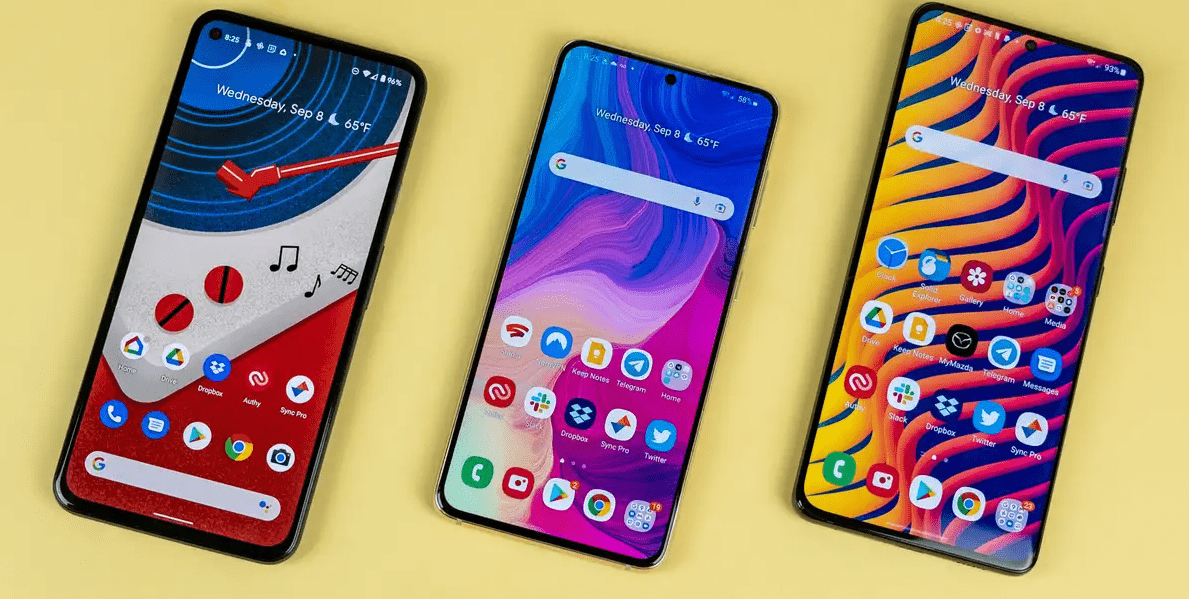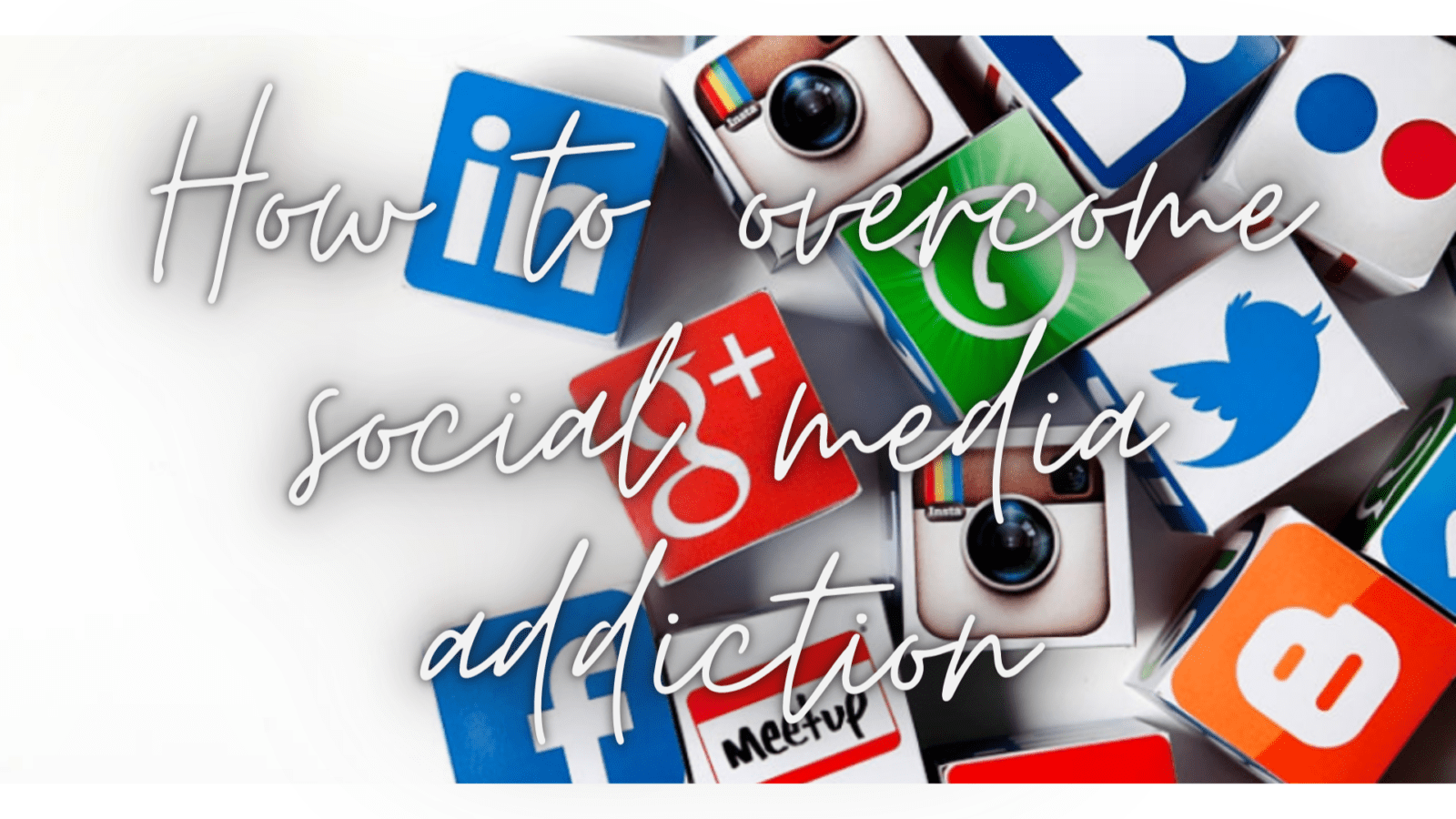If you feel like you are losing several minutes (or even hours) at once after using social media, you are not alone.
Although social media initially started out as a way to connect with friends and family, it has become a respected hobby that people of all ages use social media.
You can enjoy and use social media every day, but are you “addicted” to it?
There is no such thing as an official diagnosis of “social media addiction”. But overuse of social media has become ubiquitous today and it can have some serious impact on your physical and mental health.
Learn how to identify problematic social media usage and what you can do about it.
Table of Contents
What Is Social Media Addiction?
Checking in and scrolling through social media has become a very popular activity over the last decade. Although the use of social media by many people is not problematic, there is a small percentage of users who have become addicted to social networking sites and are engaged in excessive or forced use. In fact, psychologists estimate that 5 to 10% of Americans today meet the standards for social media addiction. Social media addiction is an over-concern about social media, a behavioral addiction driven by an uncontrollable desire to log in or use social media, and a greater amount of time and effort spent on social media affecting other important areas of life.
Addictive social media use looks like any other substance use disorder and may have a change of mood (i.e., engagement on social media leads to positive changes in emotional state), significance (i.e., exposure to social media). Patience leads to behavioral, cognitive, and emotional engagement (i.e., gradually increasing social media over time), withdrawal symptoms (i.e., experiencing unpleasant physical and emotional symptoms when social media use is restricted or disabled), and conflict (i.e., problems between individuals). , And relapse (i.e., addicted individuals return quickly to their high social media usage after exercising restraint).
The phenomenon of social media addiction is largely attributed to the dopamine-induced social environment provided by social networking sites. Social media platforms such as Facebook, Snapchat, and Instagram generate the same neural circuitry that allows gambling and entertainment drugs to make consumers use their products more. Studies show that the constant flow of retweets, likes and shares from these sites triggers the reward area of the brain for the same chemical reaction seen with drugs. In fact, neuroscientists have likened social media interactions to a syringe of dopamine injected directly into a system.
Why is social media so addictive?
While social media may seem mindless and relaxing entertainment, it can actually have a significant impact on your brain.
Whenever you log in to your favorite apps, the dopamine signals in your brain increase. These neurotransmitters are associated with pleasure.
When you experience more dopamine after using social media, your brain recognizes this action as a rewarding activity that you need to repeat. You can experience such feedback more and more whenever you make your own post and receive positive feedback.
The positive emotions that come with using social media are only temporary. The way your brain engages in this positive reinforcement is also seen in other addictions.
Therefore, as the dopamine that causes good feelings decreases, you will go back to the source (in this case, social media) for more.
In some cases, social media is welcome if you are alone due to work or illness. The more you engage, the more your brain will tell you that this is an action that will help reduce loneliness (which is not really necessary).
How do you know if you have a social media addiction?
Mental health professionals can help you determine if you really have a social media addiction or really enjoy it.
But there are some important differences between social media addiction and the habit you like. These include:
- Excessive use of social media can have a negative impact on your job or school work (e.g. scrolling through your apps at work or instead of studying)
- Increased use during other activities such as walking or eating with friends and family
- Increasing reliance on social media to deal with issues
- Relax and irritate whenever you do not use social media
- Anger comes whenever social media usage is low
Think about it when you do not use social media so that you are the first person to see it whenever you get the chance.
how to overcome social media addiction?

So what can we do? Overcoming social media addiction is not an overnight task; This requires re-evaluating your digital-life balance and making it personal to you. However, even if only you can spot it, there are some steps you can take to reduce your use and reliance on social media and help you regain control over a small tyrannical smartphone.
#1. Turn off notifications
It can be very difficult to separate yourself from social media when your phone lights up with new notifications every minute. So turn them off.
It can be very disturbing when some people are tweeting and have other similar information, but most people are caught looking at their phones and counting ‘likes’. It’s unhealthy and will only cause concern if you do so after you post. After you post what you want, I recommend you leave social media for a while without worrying about who is interacting with your post.
#2. Put less weight on your personal social media presence
Easier said than done, I know. However, one of the big signs of social media addiction is that you have to think more and plan your posts more. It causes anxiety and stress. If you put less emphasis on how and what you post, you will be able to free your mind from this stress.
#3. Do not put your phone aside while you sleep

It’s not hard to see how our phones can be confused with our sleep schedules. 45% of people prefer to scroll through social media instead of sleeping. But if you use your phone as an alarm as I do then keep it at some distance as much as you feel difficulty in reaching it.
To counteract this, place your phone on the other side of the room. If the phone is not available, we are less eager to check it out. It is often an automatic response to reach your phone and scroll through the bed social media. If you have to get out of bed to enable it, you may be wondering why you need your phone and it is likely to help you reduce how much you use it at night.
#4. Digital Detox
The best thing you can do is learn to live without it. This does not mean giving up social media, but staying away from it completely for a while. This is called digital detox.
All of the above tips are steps towards digital detox. However, the benefits of total digital detox do not match those of any of the other tips mentioned above. Only when you remove social media from your routine will you realize how much time you are taking for yourself during the day and how much it frees your mind.
If you are serious about finding ways to combat your social media addiction, try our Digital Detox course, which will guide you through the steps and strategies to achieve a better balance.
#5. Remove your phone from your morning routine

Similarly, do not reach for your phone as soon as you get out of bed. For most of us, the first thing we do in the morning is to check our phones. Avoid it! Not only does this reflect an unhealthy reliance on our phones, but it can make our minds tired of the sudden huge amount of content that affects you while you are scrolling. It can overwhelm and distract us and negatively affect our ability to focus for the day. Try not to touch it until you have settled for at least a day.
#6. Limit yourself
To limit the time you spend on social media, set a timer on your watch or phone. Choose a limit based on the severity of your addiction – say one hour per day, which is equivalent to seven hours per week – and turn on your timer every time you check your accounts. When you reach your limit, be firm and do not try to add extra time. It will be a strong test of your willpower, but in the end, it will be worth it.
#7. Get a new hobby
You may have a lot of free time on your hands now as you are trying to reduce your social media usage, so why not choose a new hobby to fill your free time? You can learn a new skill or do something you have always wanted to do, but never have time for it i.e. Hobby. You will probably be amazed at how much free time you have when you stop mindlessly scrolling through your newsfeed. Additionally, your new passion will keep your mind and hands busy when you are looking for social media.
#8. Check-in with friends and family

Instead of keeping up to date with your friends and family through their social posts, shoot them texts or call them. Even if you can not go out safely in person, you can still connect without tapping on Instagram Stories. Want to spice up your Zoom Happy Hour? Try to turn me into Weekly Game Night.
Good friends and family members are good for your mental well-being. Friends & family members can help you celebrate good times and offer help in bad times. Friends prevent loneliness and also give you the opportunity to provide the companions you need. Friends can also:
- Increase a sense of belongingness and purpose
- Increase your happiness and reduce your stress
- Improve your confidence and self-esteem
- Help you deal with grief, such as divorce, serious illness, job loss, or the death of a loved one
- Encourages you to change or avoid unhealthy lifestyle habits such as excessive drinking or lack of exercise
but also for that, you have to choose right company of friends or it may also lead to negative affect on your mental well being
Conclusion
We often spend more time investing in our online relationships than we do with people interacting on a face-to-face basis. To achieve balance, we suggest using your phone primarily as a connection tool to plan those meaningful face-to-face experiences, even if the video call is via facetime or zoom, which means “face-to-face” in lockdown situations. “Interview time is more powerful than you can say on social media,”.
Hope you find this article helpful. Don’t forget to share and discuss if you really liked this content. Thank you
Other related content:
How Social Media Affects Mental Health?
Important Social media marketing terms that You should know






8 Comments
Tam
I am really loving the theme/design of your blog.
Do you ever run into any browser compatibility problems? A few of my blog visitors have complained about my
blog not operating correctly in Explorer but looks great
in Firefox. Do you have any solutions to help fix this issue?
inamdurrani60
Thanks, Tam please ask your we b developer for that
Alexis
My brother recommended I might like this website.
He was entirely right. This post truly made my day.
You cann’t imagine simply how much time I had spent for this info!
Thanks!
inamdurrani60
Thank You Alexis for admiring our work
Isiah
Hey there I am so happy I found your web site, I really found you
by error, while I was searching on Askjeeve for
something else, Nonetheless I am here now and would just like to say kudos for a marvelous post and a all round thrilling blog (I also love the theme/design),
I don’t have time to go through it all at the moment but
I have saved it and also added in your RSS feeds,
so when I have time I will be back to read a lot more, Please do keep up the fantastic work.
inamdurrani60
Thanks, Isiah for such a wonderful remark don’t forget to share and keep visiting Thank you once again
Rudy Litchmore
Good article! We will be linking to this particularly great article on our website. Keep up the good writing.